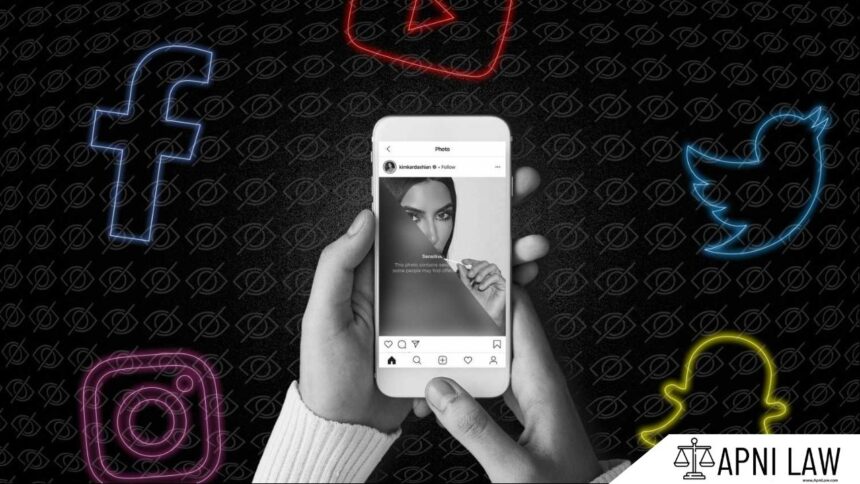Introduction
Section 79 of the Information Technology Act (IT Act), 2000, outlines when intermediaries are exempt from liability. This exemption covers third-party content they transmit or host. However, this protection is conditional.
What Section 79(1) Of IT Act States?
Intermediaries are not liable for third-party information, data, or communication links hosted or made available by them. This applies despite any other law in force, but only if they meet the conditions in sub-sections (2) and (3). The immunity under Section 79(1) applies only when the intermediary plays a neutral and technical role. If they have knowledge or control over the content, they cannot claim protection. Section 79 offers “safe harbour” to intermediaries, but only under strict conditions. To retain this protection, they must stay passive, act responsibly, and respond quickly to unlawful content.
To claim immunity, intermediaries must:
Only provide access to a communication system.
Not initiate the transmission.
Do not choose the recipient.
Not modify the content.
Follow due diligence.
Comply with government-prescribed guidelines.
What Are The Limitations Under Section 79(3) Of IT Act?
Intermediaries lose protection if they:
Help commit an unlawful act by aiding, abetting, or inducing it.
Fail to remove unlawful content after receiving actual knowledge or official notice.
Do not act quickly to block access to illegal material.
Section 79(3)(b) introduces the “notice and takedown” rule. Intermediaries must act promptly after being informed of unlawful content.
Who Is An Intermediary?
The term “intermediary” under Indian law plays a key role in internet regulation. Section 2(w) of the IT Act defines who qualifies as an intermediary and outlines their responsibilities. Understanding this term is crucial in the context of online safety, fake news, and content liability.
Section 2(w) of the Information Technology Act, 2000 defines an intermediary as anyone who, on behalf of another, receives, stores, or transmits data or provides related services.
This includes:
Telecom service providers
Web-hosting services
Search engines
Online payment platforms
E-commerce websites
Cyber cafes
What Are The Broad Role of Intermediaries?
Intermediaries have a crucial role in the digital ecosystem. Yet, many misuse the legal protection granted to them. As fake news and harmful content grow, India needs stricter laws and clearer obligations for these platforms to ensure accountability and user safety.
Conspiracy or Abetment: Intermediaries can be held liable if they conspire, abet, or aid in the commission of unlawful acts facilitated through their platforms. This provision aims to prevent intermediaries from actively participating in or enabling illegal activities through their services.
Failure to Remove Unlawful Content: Intermediaries are obligated to expeditiously remove or disable access to unlawful material upon receiving actual knowledge or notification from the appropriate government or its agency. Failure to comply with this obligation can result in the intermediary being held liable for facilitating the dissemination of illegal content.
Third-Party Information: This refers to any data or content shared, posted, or stored by users through intermediary platforms. The intermediary does not own this content but helps transmit or host it.
Intermediaries help users access and use the internet. Their tasks include:
Hosting content
Storing user data
Enabling communication
Aggregating or collecting information
Facilitating content sharing and access
The definition is not limited to digital platforms. Even cyber cafes fall under this category.
Debate on Safe Harbour for Social Media Platforms
The ‘safe harbour’ provision for social media platforms has sparked widespread debate. This legal shield affects platforms like Facebook, Twitter, e-commerce sites, and AI-driven services.
Safe harbour, under Section 79 of the IT Act, 2000, protects intermediaries from liability for user-generated content. This means platforms are not responsible for what users post.
The government argues that platforms should not get a free pass. Safe harbour cannot justify hosting harmful or illegal content. Authorities insist on stricter rules to enforce accountability.
The IT Rules, 2021, made it mandatory for platforms to appoint a Chief Compliance Officer (CCO), Resident Grievance Officer (RGO), and Nodal Contact Person. These roles ensure better content moderation and faster responses to complaints.
Under the proposed Digital India legislation, each type of intermediary will follow specific rules. The focus is on fact-checking and preventing data misuse. Platforms will now be responsible for content violations and cybercrimes on their networks.
The government aims to curb the “weaponisation of misinformation.” Deep Fakes are a major concern. These AI-generated videos can mimic real people, violate privacy, and spread false narratives.
Other harmful practices include:
Doxxing: Public exposure of private information.
Phishing: Fraudulent attempts to steal personal data and financial details.
Why Musk-Owned X Challenges Section 79 of IT Act?
Elon Musk’s social media platform X (formerly Twitter) has legally questioned Section 79 of India’s Information Technology Act. The company filed a petition in the Karnataka High Court, challenging the law’s application and its impact on digital platforms.
X argues that the law suppresses free speech and forces platforms to act as censors. The company believes the rules under Section 79(3)(b) violate constitutional rights, especially Article 19(1)(a), which guarantees freedom of speech.
The case is currently before the Karnataka High Court. X seeks clarity on whether platforms can challenge government takedown orders. It also wants protection against penalties for non-compliance with certain directives.
The Indian government has not yet responded formally. However, sources suggest the Ministry of Electronics and IT may defend Section 79 as essential for responsible digital governance.
This case could redefine platform liability in India. If X wins, tech companies may get more freedom to refuse content takedown requests. If it loses, platforms may have to comply with all government orders without question.
Conclusion
In conclusion, Section 79 of the Information Technology Act plays a vital role in shaping digital accountability. It offers conditional immunity to intermediaries, protecting them from liability for third-party content. However, they must act swiftly upon receiving lawful orders or notices. As online platforms grow, debates around their responsibility and regulation continue to evolve. Clearer guidelines and stronger enforcement can ensure a safer digital space. Section 79 remains crucial in balancing free speech and legal compliance in India’s digital ecosystem.









